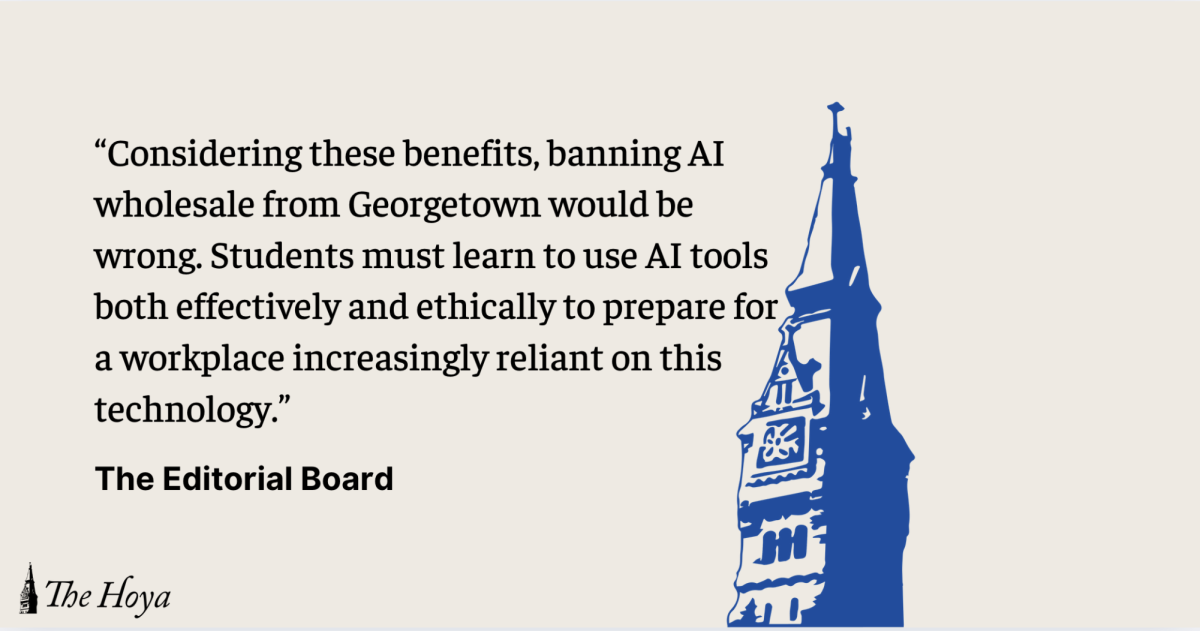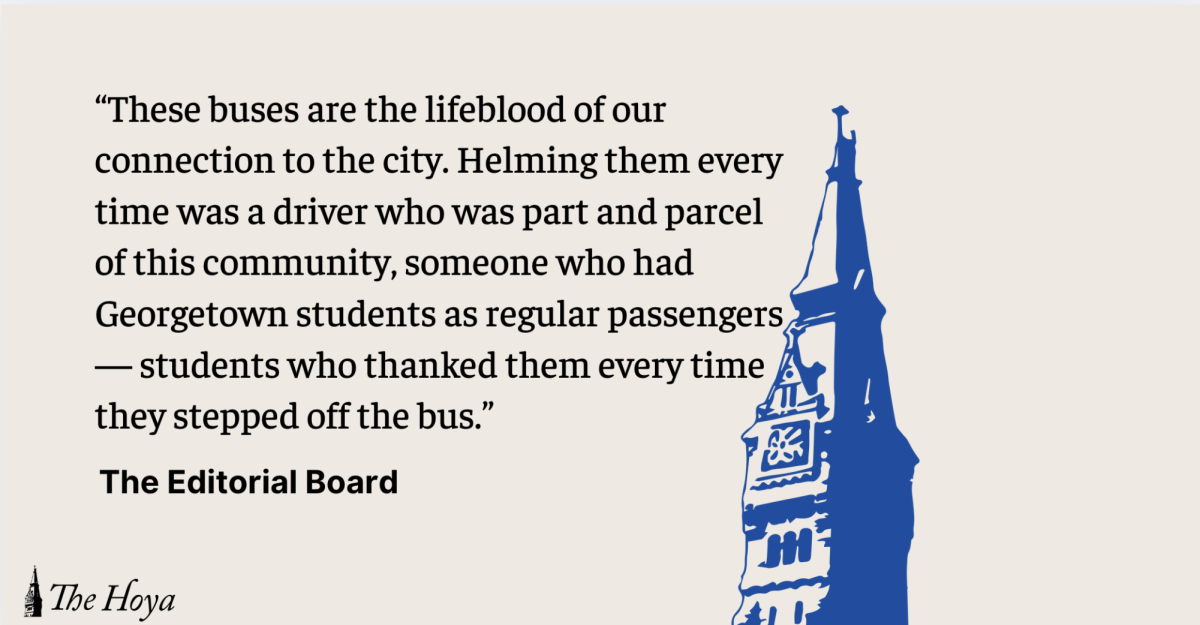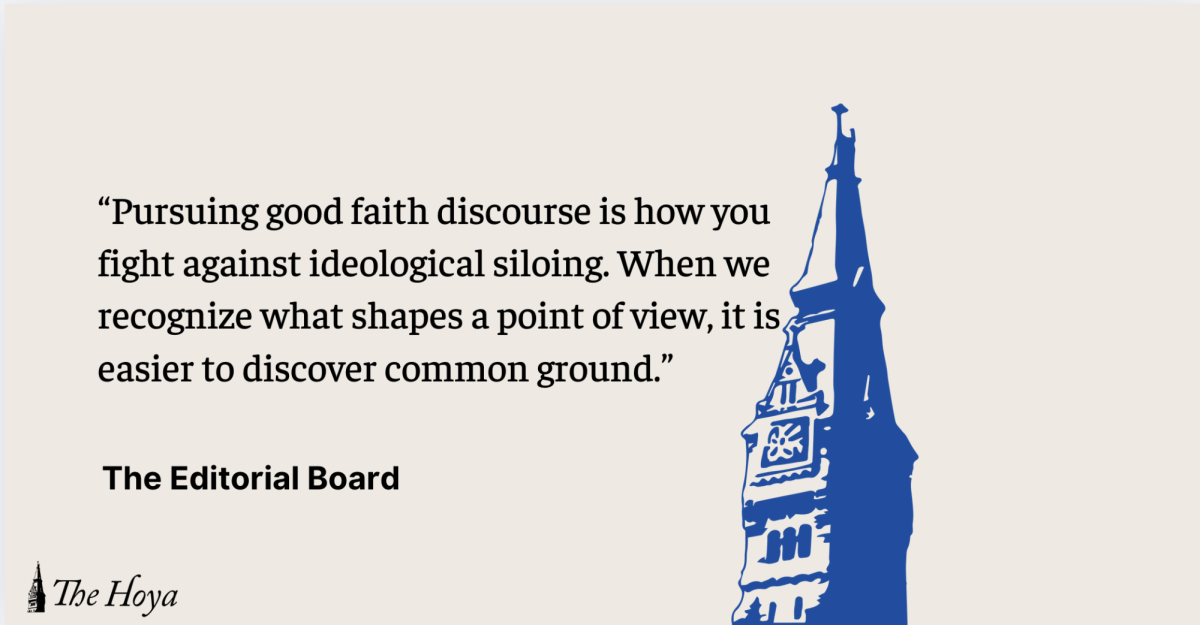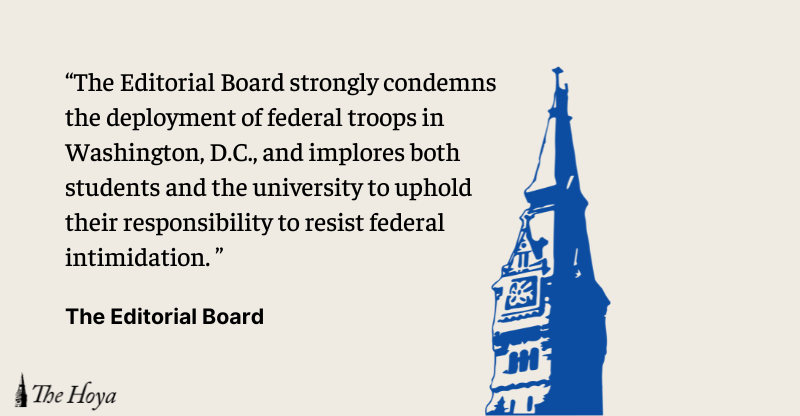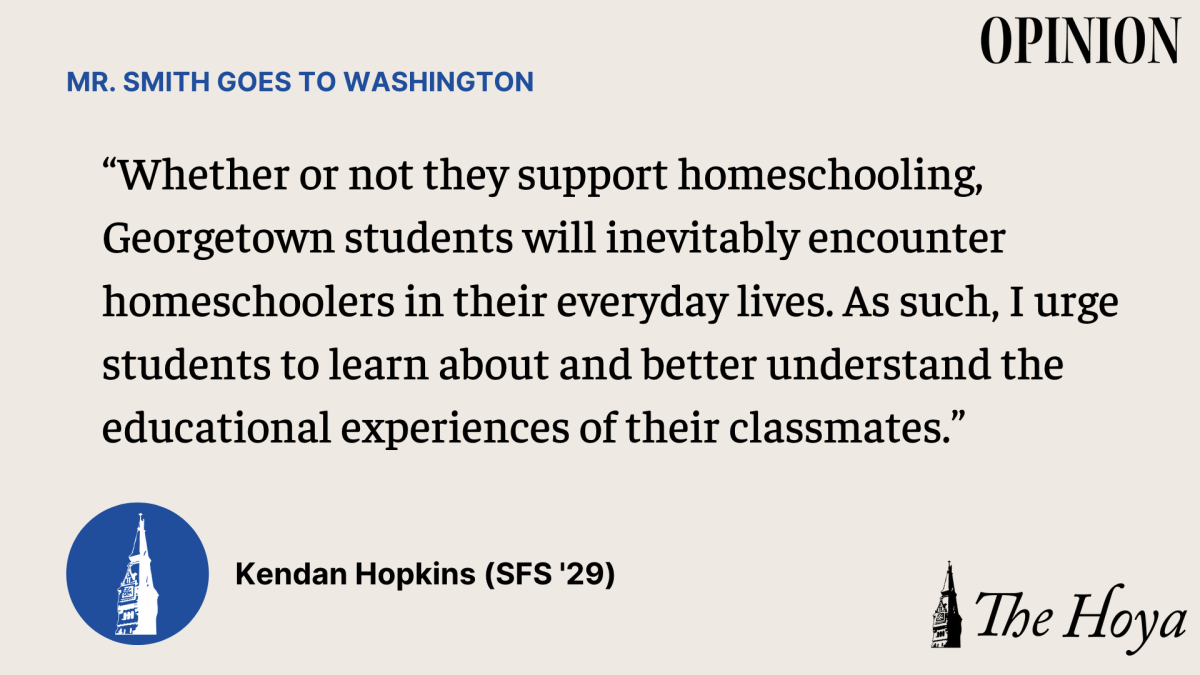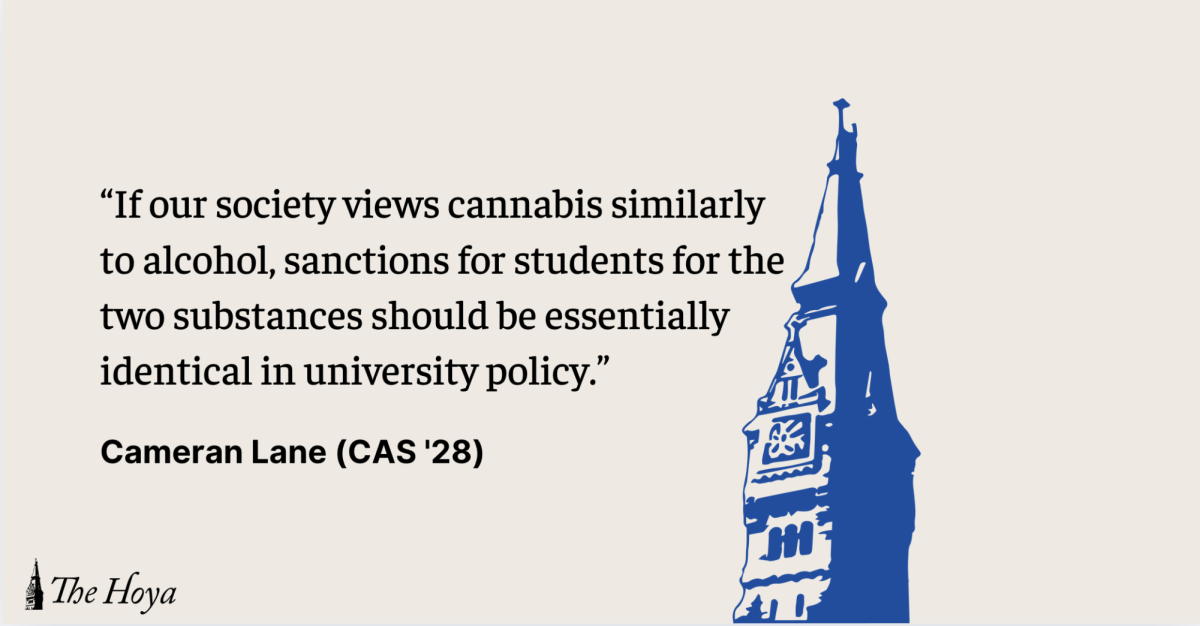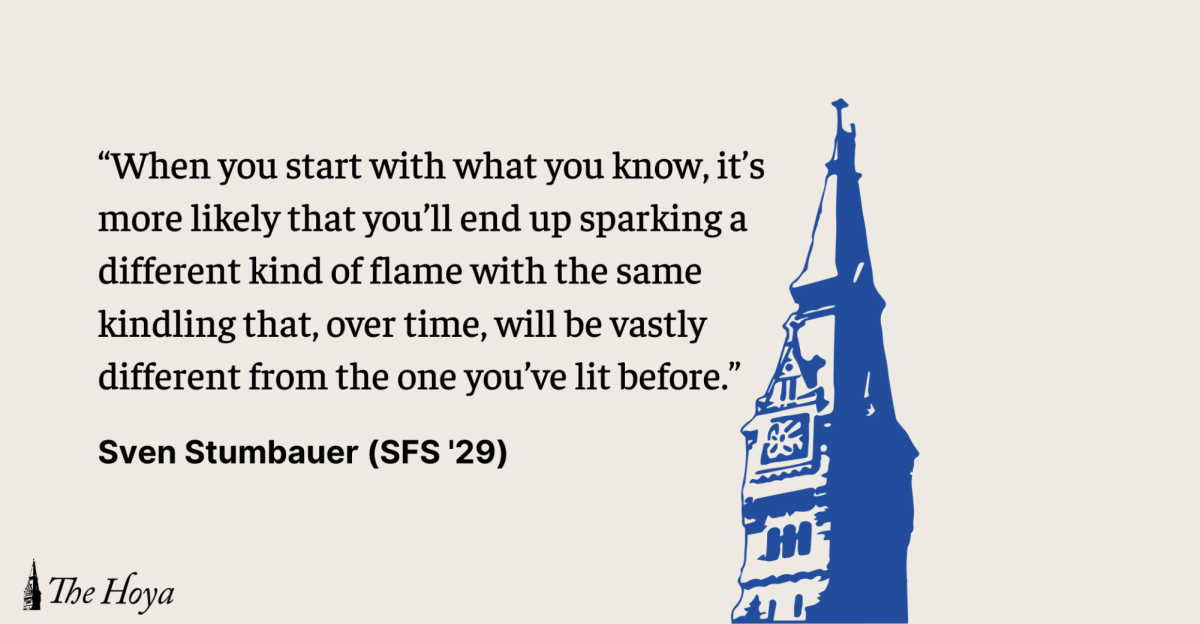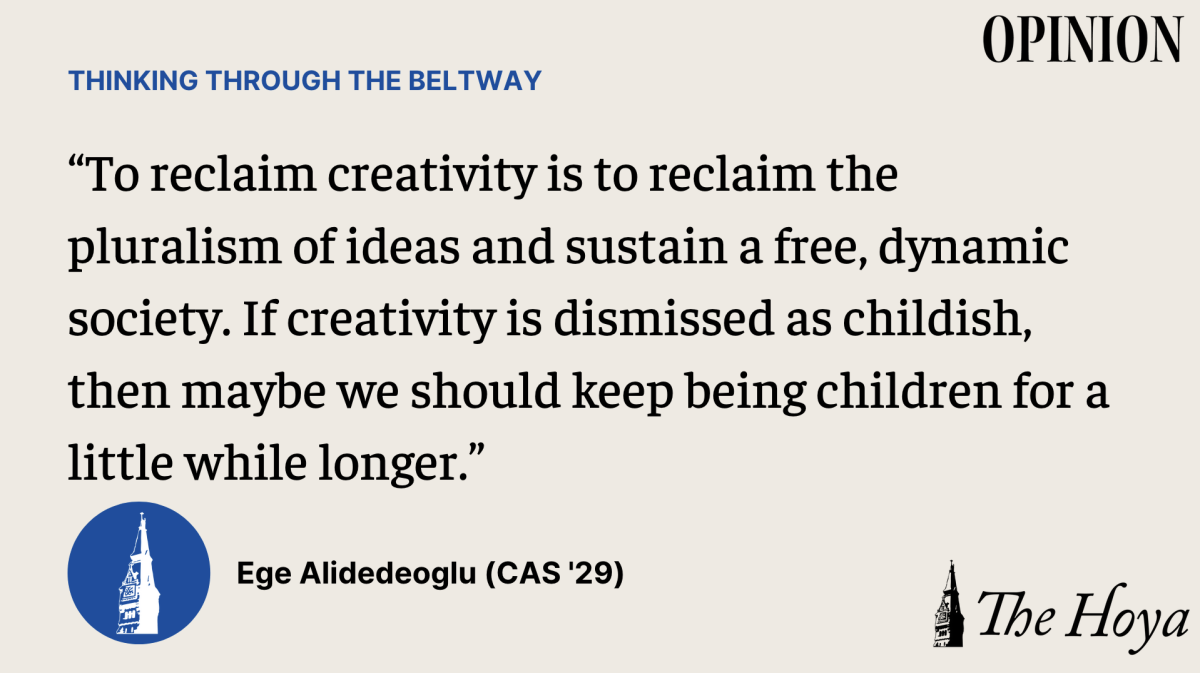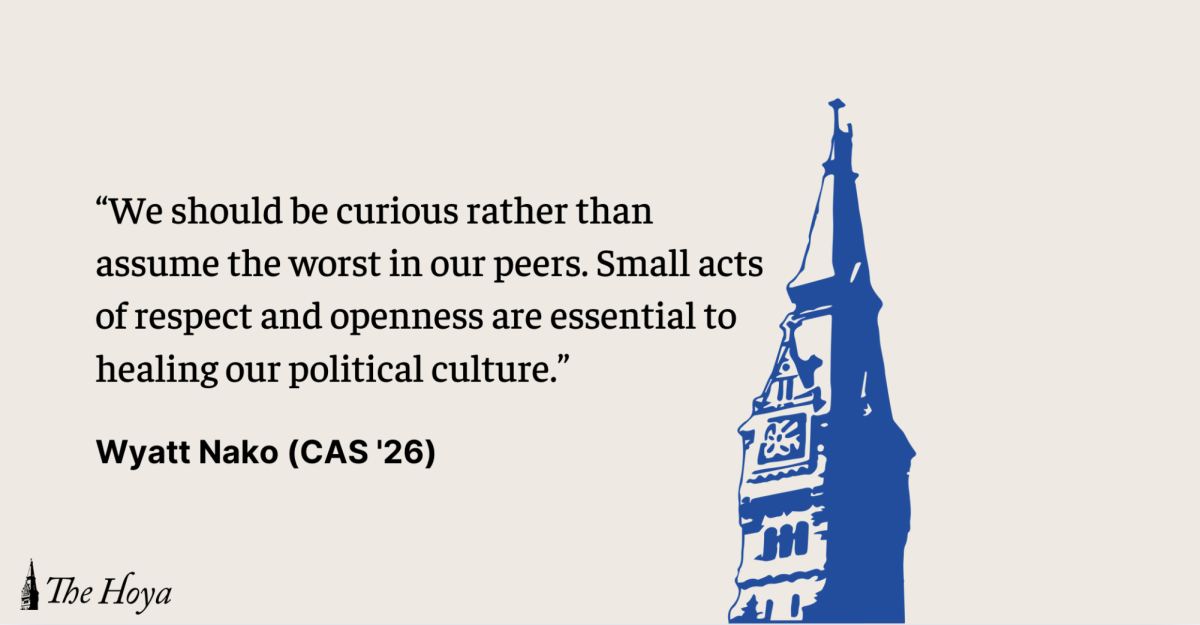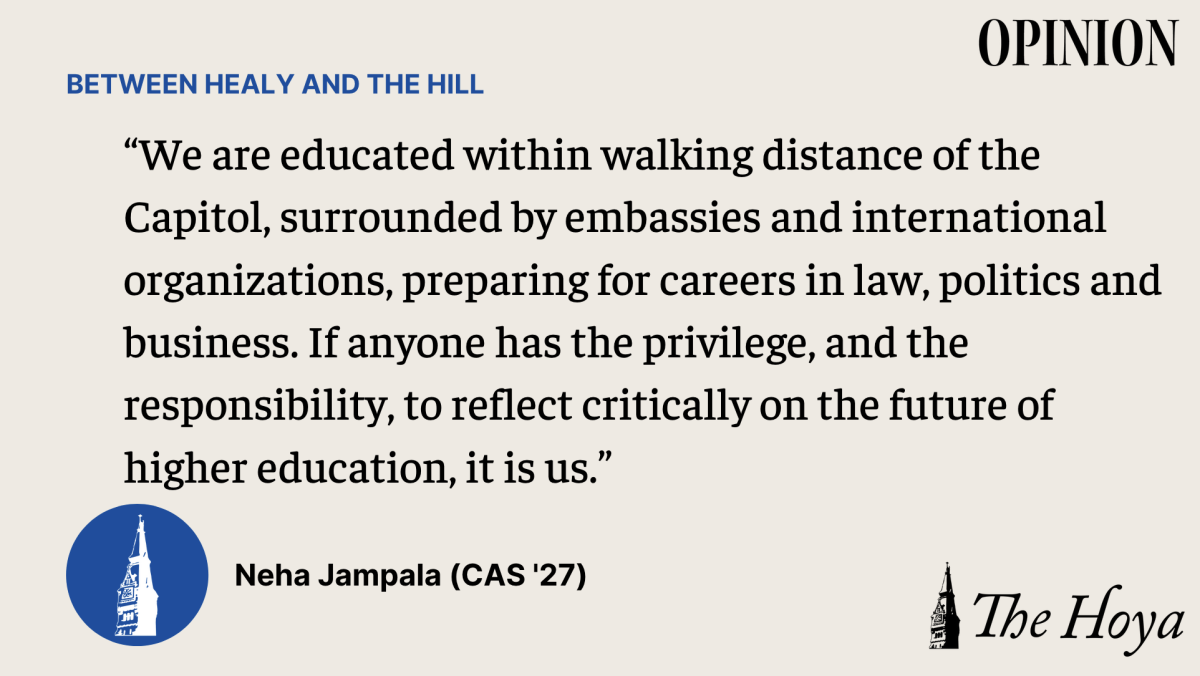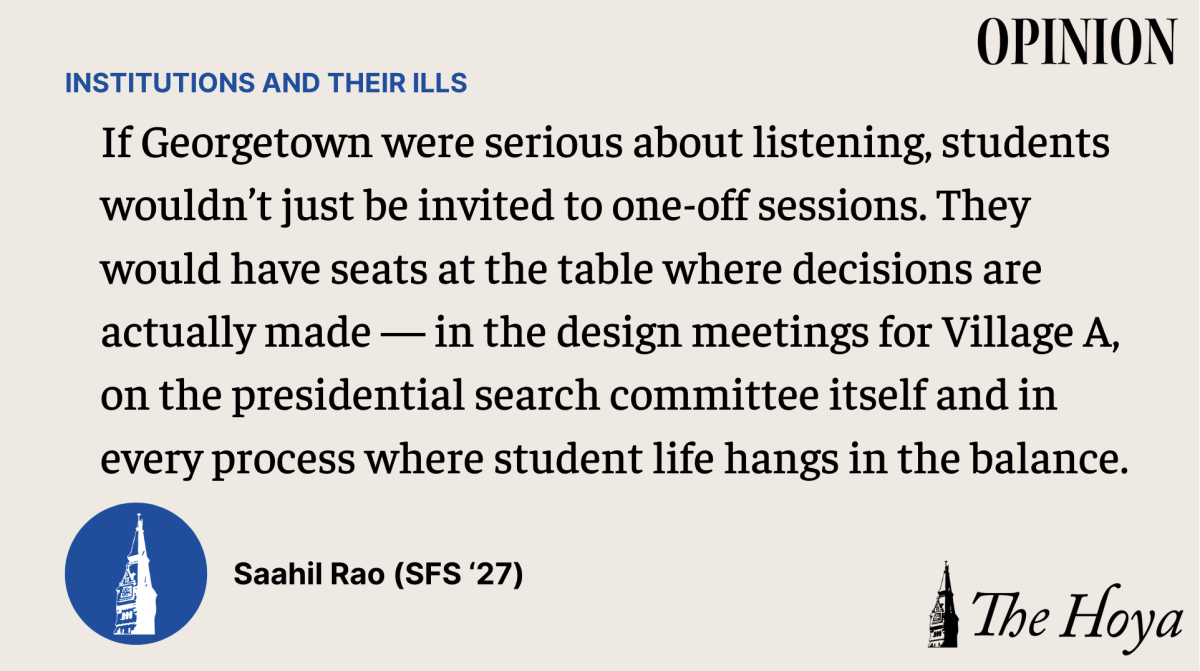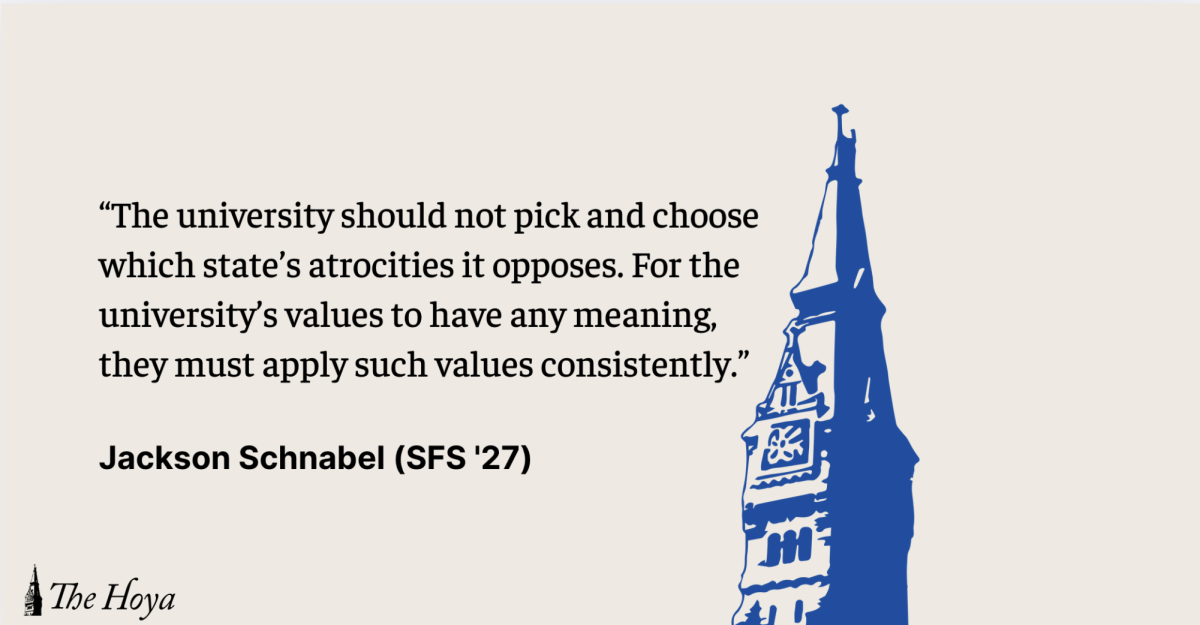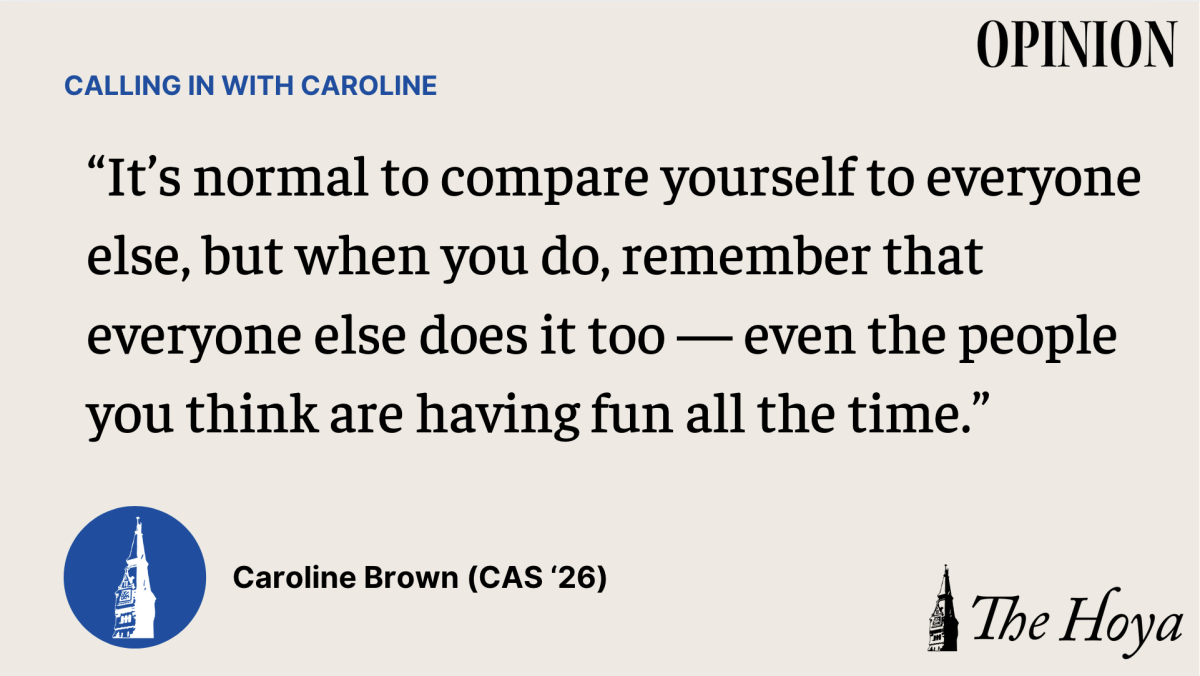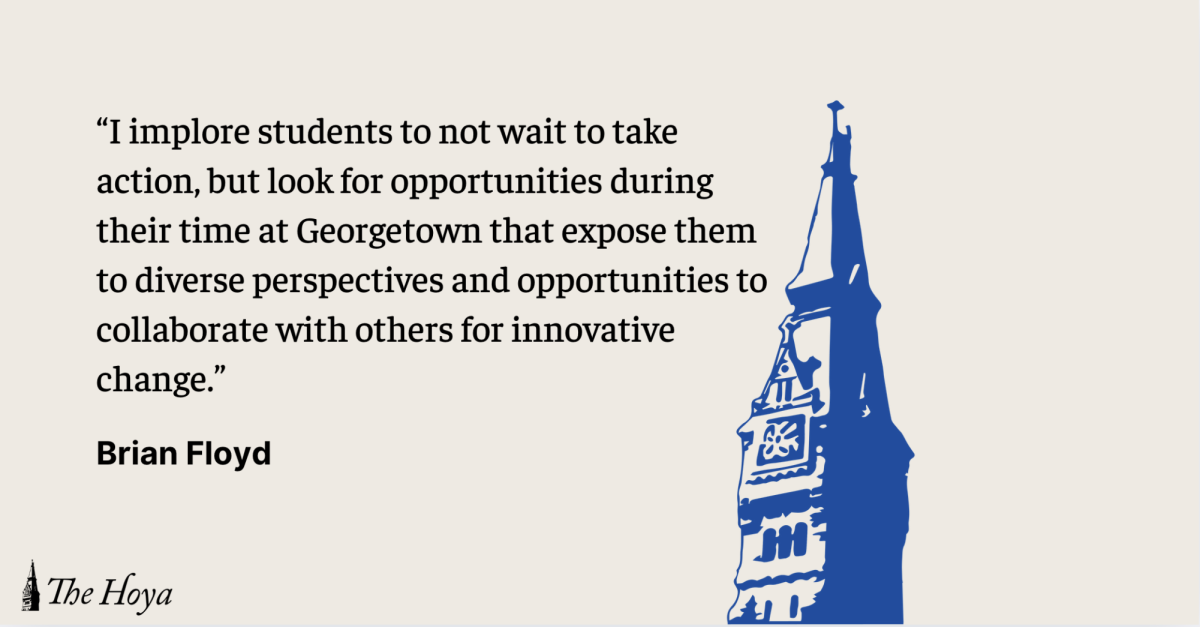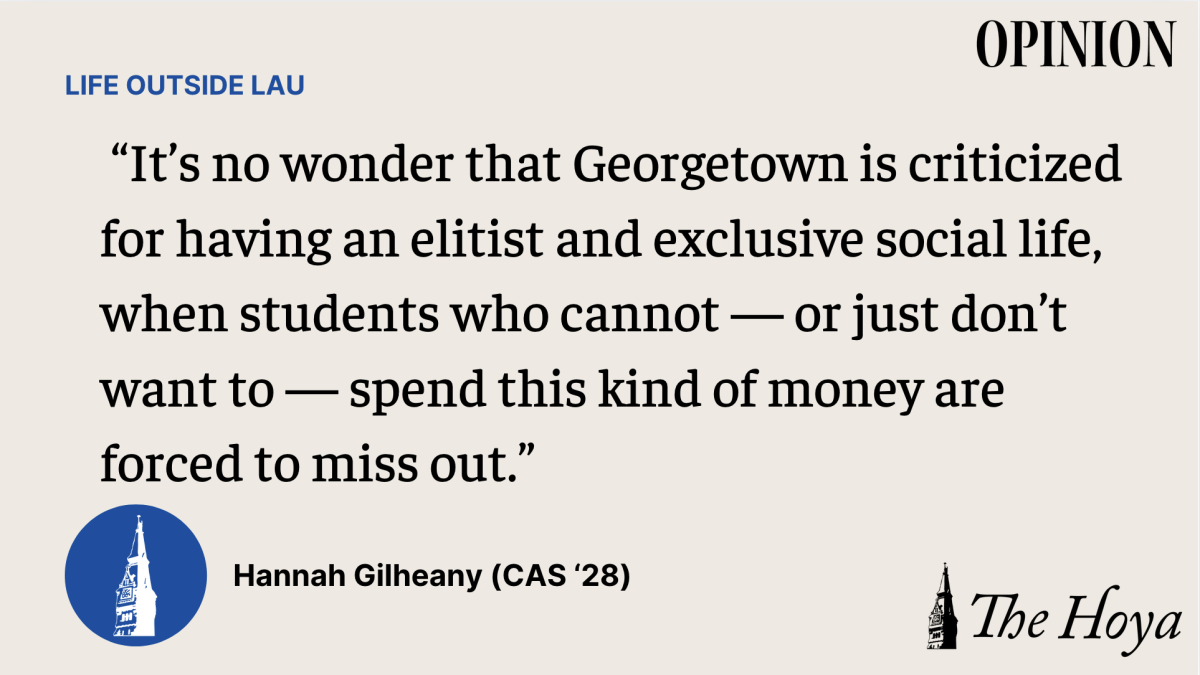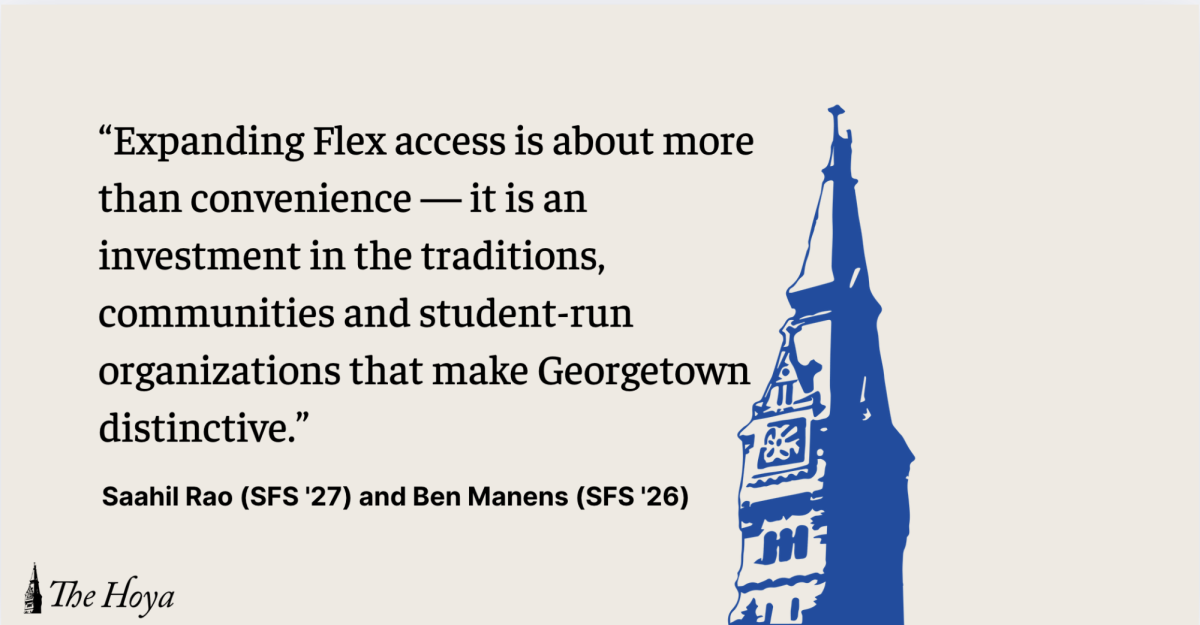To Georgetown University’s student body, exhausted by or indifferent to the prospect of yet another Georgetown University Student Association (GUSA) executive election that seems to prioritize ideological standing over pragmatic change, we have bad news.
After careful consideration, The Hoya’s Editorial Board reluctantly endorses the Ethan Henshaw (CAS ’26)/Darius Wagner (CAS ’27) ticket for GUSA executive office. While their policy platform is laden with ideas, it lacks pragmatism and will be difficult at best to implement; still, the candidates’ proven track record and deep understanding of GUSA operations make them the stronger choice.
The Henshaw/Wagner policy platform is expansive. The 11-page document proposes a large number of far-reaching goals: abolishing legacy admissions, launching a “campaign to normalize and regularize conversations around inclusivity and accessibility,” removing programs that send new transfer students to the Capitol Campus and increasing the frequency of Georgetown University Transportation Shuttle (GUTS) services. Wagner told The Hoya that “what we see is a platform where we are able to be strong advocates and where we know the work that goes into accomplishing many of these goals.”
Those goals — if you ask the ticket — are the result of their uniquely pluralistic approach to campaigning, including outreach to 40 clubs and meetings with 26, resulting in endorsements from a variety of organizations across campus. Henshaw and Wagner bring to the table a seemingly unprecedented level of widespread popularity.
To their credit, both Henshaw and Wagner bring an impressive degree of institutional experience to their campaign. Henshaw, an experienced GUSA senator, has spearheaded initiatives ranging from implementing gender-inclusive housing to extending winter break. Perhaps more notably, his leadership as co-president of the Georgetown University College Democrats and co-founder of Hoyas Against Legacy Admissions, a student-led campaign to end legacy admissions at Georgetown, further demonstrates his campus-wide influence. Wagner, also a co-founder of Hoyas Against Legacy Admissions, currently serves as GUSA’s financial accessibility chair, though in an appointed rather than elected capacity. The Editorial Board finds that their combined experience reflects a genuine concern for the well-being of the student body.
However, the Editorial Board cannot offer the Henshaw/Wagner ticket an unconditional endorsement. In the Editorial Board’s view, it seems that their platform, while broad in scope, largely consists of platitudes designed to appeal to large swaths of the student body rather than tangible plans for implementation. As Wagner told The Hoya, “We want to be there for our clubs. We want GUSA to be actively involved in our student body… We’re in this because we care about helping campus life, and we care about bringing back some more fun and bringing our communities together.”
The Henshaw/Wagner policy platform relies on familiar promises and GUSA cliches — to install free printing and laundry, protect affinity houses from the Student Neighborhood Assistance Program (SNAPs), a program which identifies “student houses that may raise concerns,” end legacy admissions and increase financial aid — most of which the Editorial Board wholeheartedly supports. While Henshaw and Wagner have significant GUSA and student organizing credentials, the disconnect between their ambitious goals and lack of actionable steps raises serious concerns.
In a striking parallel, The Hoya’s Editorial Board declined to endorse a candidate for the GUSA executive office in February 2022, describing the options as “pitiful.” Although the Board praised the Thomas Leonard (CAS ’23)/Nirvana Khan (SFS ’24) ticket’s “reasonable grasp of important issues,” it criticized them for their insufficient plans to implement change on Georgetown’s campus. Even then, Leonard and Khan presented a more detailed policy framework than the Henshaw/Wagner platform.
The Editorial Board cannot, therefore, unconditionally endorse candidates whose platform similarly lacks concrete strategies to implement their ambitious proposals.
However, the rival ticket, composed of Alexandra Sanchez (MSB ’26) and Paul Sperber (CAS ’26) presents more concerning issues. Sanchez and Sperber provided a one-page policy platform to The Hoya — one page more than they have released to students — and have released one Instagram graphic with a list of proposals that are neither ambitious nor achievable, centered on dining reform and Georgetown Day. Their policy plans lack detail and fail to address popular campus issues such as legacy admissions, campus protests and broader financial accessibility.
During their interview, unlike Henshaw and Wagner, Sanchez and Sperber said they would support funding the Capitol Campus more and opposed divestment.
Most troublingly, Sanchez confirmed in an interview with The Hoya that her run for GUSA allows her to receive an exemption from writing a 20-page paper in the government class “Campaigns and Elections.” While she maintained she had intended to run beforehand, this explanation rings hollow given the Sanchez/Sperber ticket’s evident unpreparedness during the interview and their notably short platform.
“There was an assignment that was if you help someone in a campaign, that can be like a project, except that’s not why I’m running; I was going to run beforehand because I’m actually passionate about this issue,” Sanchez said. “I’m definitely 100% fit for the job; that’s no reason why I should be looked down upon. I think it just shows that I’m willing to put myself out there, and I think that makes me a really good candidate because it shows I’m wanting to do this and I’m really passionate about it.”
The Sanchez/Sperber ticket also lacks crucial GUSA experience. Their limited understanding of executive-senate relations, particularly regarding appropriations, combined with their outsider status, casts serious doubts on their ability to implement their agenda.
The Editorial Board’s endorsement decision this cycle stems neither from either ticket’s specific policy proposals nor from any real, existential question about the role of the GUSA executive raised by either ticket. While the choice was not particularly difficult — the Henshaw/Wagner ticket will undoubtedly represent the student body more thoroughly and professionally than the Sanchez/Sperber ticket — the Editorial Board remains unconvinced by the merit of both tickets’ platform and positions.
The Editorial Board encourages students to vote for the Henshaw/Wagner ticket, but to simultaneously call for more and better from their GUSA executives and candidates in the future. In February 2022, the disappointed Editorial Board called for “bold and specific policies.” We’re not holding our breath.
The Hoya’s editorial board is composed of six students and is chaired by the opinion editor. Editorials reflect only the beliefs of a majority of the board and are not representative of The Hoya or any individual member of the board.



